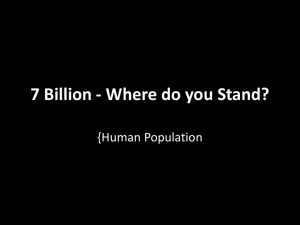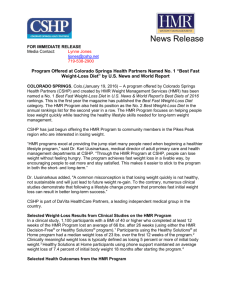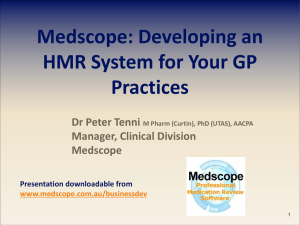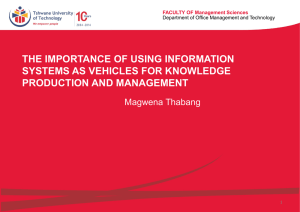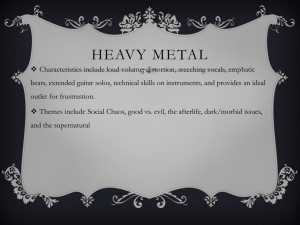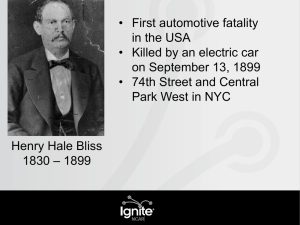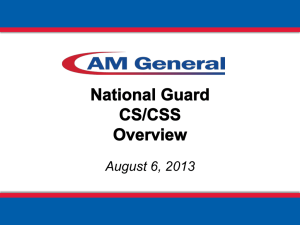HMR Group presentation - ALUMINIUM MIDDLE EAST 2015
advertisement
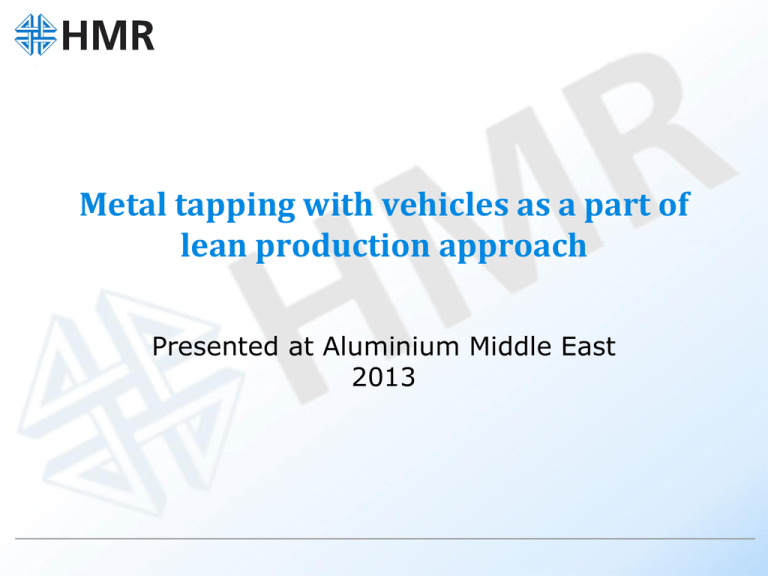
Metal tapping with vehicles as a part of lean production approach Presented at Aluminium Middle East 2013 The Market Situation • • • • Primary production over-capacity Provision of Recycled metal Estimated 10Mt of aluminium in warehouses Stringent environmental standards Need for restructuring/optimisation March 2013 www.hmr.no 2 Stringent challenges for primary producers • • • • • March 2013 Cost of energy Cost of primary materials and manpower Impact on the environment Fair employment and safety in the workplace Shareholders’ satisfaction www.hmr.no 3 Returning money back to shareholders • The key point is how to return money back to shareholders. The only way is a rational approach to production of aluminium March 2013 www.hmr.no 4 Improving overall plant efficiency Tendencies of technology • Higher amperages • Higher current density • Sophisticated controls to manage the pot (magnetic field, heat balance, cathode effect and so on) March 2013 www.hmr.no 5 Tendencies of technology March 2013 www.hmr.no 6 Material flow and processes • The generalised side-by-side lay-out of reduction cells imposes the use of cranes for most pot-tending operations (anode changing, anode covering and crust breaking) March 2013 www.hmr.no 7 Material flow and processes • Many tasks are still performed only with vehicles: it is important to establish a correct definition for plant logistics and vehicles traffic in order to stabilise processes, reduce the cost of potroom equipment, secure a high level of safety and control of emissions. March 2013 www.hmr.no 8 Analysis of the processes optimisation • While computerised simulations of material flows in the potroom can be a good way of assessing the number of resources necessary to accomplish a task a strict and perfect control or an optimization of processes made by machines and software is rigid and difficult, at least with today’s technology. March 2013 www.hmr.no 9 Anode changing and metal transporting • In newer side-by-side smelter layouts – where there is no room for the vehicles – the job of anode changing went back to the cranes • The crane has become an integrated pottending machine (PTM) capable of handling anode changing, crust breaking and anode covering. March 2013 www.hmr.no 10 Anode changing and metal transporting • But there are still some tasks where vehicles are required, such as the removal of spent anodes from the potroom and the installation of new ones March 2013 www.hmr.no 11 Metal tapping and transporting with vehicles • Metal tapping operations can be performed with overhead cranes in conjunction with transportation vehicles or with special metal tapping vehicles (MTVs). March 2013 www.hmr.no 12 The Lean production philosophy • This approach aims to reduce waste (muda), excess (muri) and irregularities (mura) on production processes • Combined with a systematic implementation of Just in Time effort, a lean production approach exposes quality problems that are otherwise hidden by buffer stocks. March 2013 www.hmr.no 13 The Lean production philosophy • Forcing smooth flow of only value-adding steps uncovers problems, which must be dealt with explicitly. March 2013 www.hmr.no 14 The Lean production philosophy • Lean production is indeed, for a large amount, an approach devised for the “human beings hands, attention and skills” March 2013 www.hmr.no 15 March 2013 www.hmr.no 16 A complete closed Tapping System Hot Crucible Cleaner Tube cleaner, Inside Siphon Tube Preheater March 2013 HMR Hydeq 17 Metal Tapping with Vehicles March 2013 www.hmr.no 18 Metal Tapping with Vehicles March 2013 www.hmr.no 19 March 2013 www.hmr.no 20 March 2013 www.hmr.no 21 March 2013 www.hmr.no 22 Comparing different approaches • METAL TAPPING WITH VEHICLES (MTV) March 2013 • METAL TAPPING WITH CRANE +VEHICLES www.hmr.no 23 METAL TAPPING WITH VEHICLES (MTV) METAL TAPPING WITH CRANE +VEHICLES Detaching metal tapping from crane operations reduces time losses and waste due to the ‘over dimensioning’ of the crane (load capacity and number of cranes). It reduces the movements of vehicles and hence efficiency. A pot tending crane is used to bring the crucible to the pot to be tapped. When full, the crucible is loaded on a truck. March 2013 www.hmr.no 24 METAL TAPPING WITH VEHICLES (MTV) METAL TAPPING WITH CRANE +VEHICLES The metal is delivered to the cast house by MTVs Just in Time. Cast house calls for metal and information on the amount to be delivered and cells to be tapped are directly broadcasted to the MTV driver. The process is clean and clear as it is controlled only by the MTV driver. A pot tending crane is used to bring the crucible to the pot to be tapped. When full, the crucible is loaded on a truck. March 2013 www.hmr.no 25 METAL TAPPING WITH VEHICLES (MTV) METAL TAPPING WITH CRANE +VEHICLES Crucibles are taken to the cleaning station and directly cleaned Just in Time by the driver. No local storage of crucibles is created. Possible problems on cleaning have to be solved immediately in order to respect the scheduling. Crucibles are usually not cleaned Just in Time. A stock of several crucibles waiting for cleaning is easily produced. March 2013 www.hmr.no 26 METAL TAPPING WITH VEHICLES (MTV) METAL TAPPING WITH CRANE +VEHICLES MTV driver performs tapping according to cast house requests. No other floor personnel are required. A crew attends the tapping operations by the crane. Additional manning for trucks. Maintenance and substitution of tapping and discharge tubes are performed by MTV driver. A separate shop is usually dedicated to the cleaning of tubes. March 2013 www.hmr.no 27 METAL TAPPING WITH VEHICLES (MTV) METAL TAPPING WITH CRANE +VEHICLES No need for a tilter in the cast house as the MTV discharges the metal by itself. No additional equipment required. Active suspension tilts vehicle to optimise discharging efficiency. A tilter (or emptying system) with crew is necessary in the cast house. March 2013 www.hmr.no 28 METAL TAPPING WITH VEHICLES (MTV) METAL TAPPING WITH CRANE +VEHICLES The crucible stays on board the MTV at all times. It is released only for cleaning and maintenance, when it is picked up by the vehicle without the use of additional equipment or manning. The crucible is transferred from the crane to the truck, then to the casthouse tilter (or emptying system). A lifting device is necessary to unload the crucible from the truck and vice versa at the cleaning station. March 2013 www.hmr.no 29 Considerations • Metal tapping with vehicles requires disciplined and skilled drivers. A continuous training programme should be established and monitored in order to check and improve the ability of drivers. March 2013 www.hmr.no 30 Considerations • As for all vehicles and equipment a robust program of training on daily routine checks made by drivers should be established, run and monitored. Reports coming from drivers should integrate preventive maintenance programmes. March 2013 www.hmr.no 31 Considerations • Focus should be put on all processes involved in the use of vehicles: spare parts purchasing, maintenance, operator training with continuous reporting, review and improvement in order to reduce problems and costs and increase efficiency. March 2013 www.hmr.no 32 Considerations • The equipment supplier should be treated as a resource. Two-way communication and feedback on the product may improve and reduce operation costs. March 2013 www.hmr.no 33 Summary • The only mandatory way of securing long-term smelter profitability is to improve overall plant efficiency. HMR believes that the lean production approach is the best way to improve a process. March 2013 www.hmr.no 34 Summary • Where lean production is concerned, it appears evident that metal tapping with vehicles is preferable as it results in a smoother process with fewer risk zones. It also exposes problems and calls for systematic solutions instead of buffer stocks. March 2013 www.hmr.no 35
